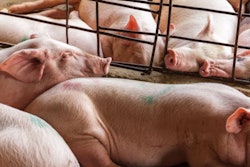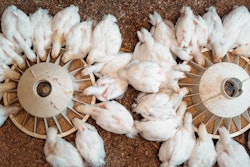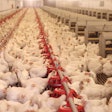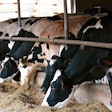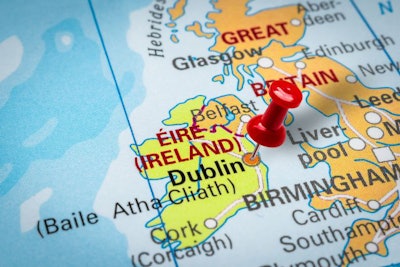
To avoid jeopardizing animal health in Northern Ireland, the territory’s agriculture minister is calling for urgent clarification of the rules covering the flow of veterinary medicines from Great Britain.
For the sake of animal health, agreement must be reached soon on the supply of veterinary medicines to Northern Ireland (NI).
This was the recent call from Northern Ireland’s agriculture minister Edwin Poots, MLA, according to the Department of Agriculture, Environment and Rural Affairs (DAERA).
Supply of medicines — both medical and veterinary — to the territory is among the unresolved issues after Brexit. Effective from the start of 2021, the term applies to the departure of the United Kingdom (U.K.) from the European Union (EU) after a referendum in 2016.
Currently in a transition phase, veterinary medicines may be moved to Northern Ireland from Great Britain under an agreement with the EU. While the U.K. government supports the indefinite extension of this grace period, EU authorities have not agreed.
Poots has expressed his concerns over the uncertainty regarding this issue.
“While I acknowledge the EU recognition of the current grace period in relation to these moves, it is not enough,” he said. “I am concerned about the negative impact on animal health, both commercial and family pets, in addition to the burden our industry would face if they had to meet all the additional EU requirements for the movement of veterinary medicines to NI when there is simply no need for it.”
According to the minister, there should be no barriers in place that would risk the health and welfare of animals in Northern Ireland.
He called for a “sensible, permanent and pragmatic solution” that has no adverse effects on the supply of veterinary medicines to Northern Ireland from Great Britain.
Negotiations resume
This week, talks are set to resume to resolve more of the still-outstanding issues from Brexit. Principals involved are European Commission Vice President Maros Sefcovic and U.K. Foreign Secretary Liz Truss.
Despite many previous discussions with the EU involving Truss’s predecessor, no agreement was reached between the parties on some topics.
Complicating the U.K.’s full departure from the EU as of January 1 is the Northern Ireland Protocol. With the Protocol, the intention was to ensure there was no hard border between Northern Ireland and the Republic of Ireland. An independent state, the Republic remains a member of the EU.
One month ago, Reuters reported that compliance and logistic regulations have been reached for medicines. This demonstrates that the protocol allows for a level of flexibility in practice, according to the EU executive. This is the body that deals with the U.K. on behalf of the community’s remaining 27 member states.
At the end of last year, a statement from the U.K. government clarified the position. It confirmed that medicines can be supplied to Northern Ireland from Great Britain (England, Wales and Scotland) without needing any additional regulatory controls. Examples of supplementary controls would be manufacture and import authorizations, batch testing and qualified person (QP) certification carried out in Northern Ireland or a state in the European Economic Area.
The EU is seeking to reach agreement with the U.K. over the end of the Northern Ireland Protocol by the end of February. This is according to the Institute of Export and International Trade last week.
One year ago, a lack of clarity and unfamiliarity with new procedures were creating major headaches for Great Britain’s livestock feed and pig industries. This came after a widely welcomed last-minute tariff-free agreement between the EU and the U.K.



